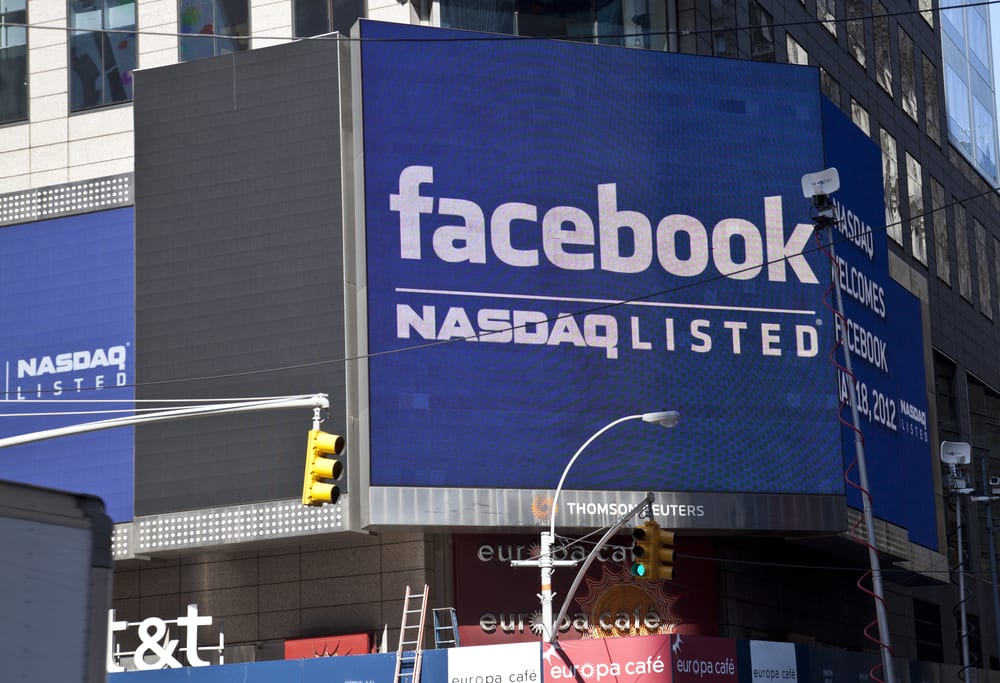On the day of Facebook’s initial public offering (IPO), on May 18th, 2012, David Ebersman, the company’s Chief Financial Officer, valued the stock at $38 per share, making it one of the largest IPOs in history, raising $16 billion. It set a new record for the trading value of an IPO, and had been underwritten by three of the biggest banks in America – Morgan Stanley, JP Morgan, and Goldman Sachs.
Demand was thought so high that the company announced, two days before the IPO, that it would sell 25% more shares than had originally been planned. When the trading began, stocks shot up to $45. With all the hype building up to it, then, for what was, after all, the transformation of the world’s most popular social network from a private company into a public one, it might seem surprising that things went so drastically wrong.
But go wrong they did. After that initial surge the stock value dropped quickly from $38 to $32. Those banks that underwrote the IPO had to jump in and buy millions of shares between themselves to keep the value up, but that only slowed things down. During the ninety days after the IPO, Facebook’s market value dropped more than $50 billion. At its lowest point, in September, the stock was valued at just $17.55. So what went wrong, and why?
Great Expectations
Hype is a fickle thing. On the one hand, if something lives up to its hype, its popularity is likely to rise and rise. If, however, the eventual response is one of disappointment, the long-accumulated excitement can dissipate quickly. The last thing a company wants on the day it becomes public is bad publicity.
Even before the IPO, though, there was some skepticism of the high valuation, which some see as a response to LinkedIn’s IPO, in which a 110% rise in stock value due to mispricing resulted in $350 million effectively given away to investors. On the big day, the NASDAQ experienced technical problems, undermining confidence in the stock. When the IPO was then described by the media as disappointing, a self-fulfilling prophecy began to unfurl.
The next blow came when Wall Street regulators began an investigation to discover whether or not the banks underwriting the IPO had improperly shared information with select clients. Investors who had already lost money pounced on the issue and lawsuits were filed – hardly encouraging for future investors.
Deeper Issues
A more underlying reason for the failing IPO is Facebook’s position as an advertiser. The company had announced in its prospectus that they had 2.7 billion daily ‘likes’ and comments, but around 54% of those likers and commenters are younger than 44, with a large proportion in the lower half of that demographic. Young people don’t generally have much money, and so Facebook’s advertising platform is less attractive to clients than those of its rivals – Google, say, whose Google Wallet can ascertain what a customer wants, what that customer buys, and what that customer is willing to pay. Facebook’s revenue has always mostly come from advertising, though, and now that it’s become public, it needs to convince investors that it knows it is a business as well as a social network.
Light in the Tunnel
Despite this turmoil, recent signs point north. Bernstein Research Analyst, Carlos Kirjner, has recently determined that, using the ever driving growth delivered by mobile advertisements, Facebook can increase its number of ads without the degeneration of the overall Facebook experience for its users. And although he advises caution, pointing out that the long-term success of social advertising has yet to be proven, Facebook’s stock has recently been increasing with alacrity.
Although it has yet to regain its original IPO price, stock this week has surpassed the $30 dollar level, ending at $31.72 on Friday the 11th. What’s more, the quarterly performance review being announced later this month is expected to be a positive one, and positive momentum is the surest bet for investors.
After a catastrophic IPO which could have been avoided, or at least limited, the prospects for the future look brighter than ever. Of course investing is still a risk – but at this point it might just be a risk worth taking.
Did you like this article? Write for the site. Sign up for our RSS.
Images: ”NEW YORK – MAY 18 Sign announcing Facebook IPO / Shutterstock.com“




